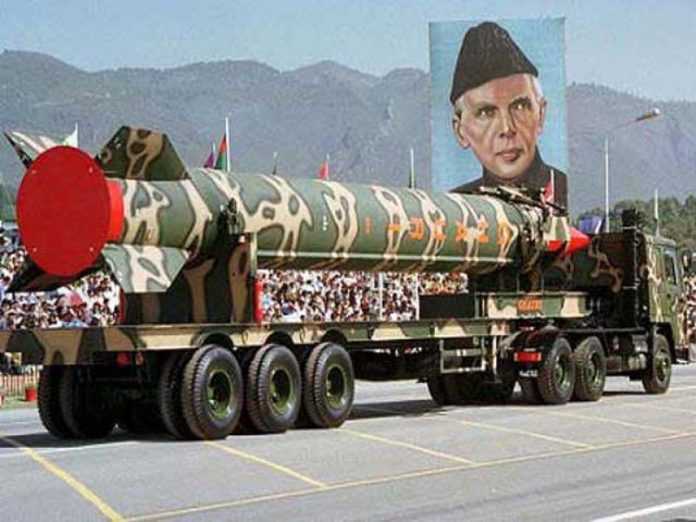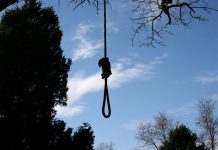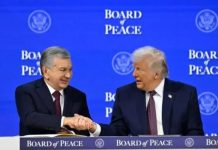By Majid Khan (Melbourne – Australia) : –
Ewald Banse, a famous German geographer writes “the geographical position of a state determines its military security or insecurity in advance. It endows it with a smaller or larger number of neighbours, give it protection of coasts of mountains or deserts or alternatively, handicaps it by surroundings with countries of vastly superior size and wealth which are always threatening to swamp it”
Same thing apply on Pakistan when we look at the geographical location, it shares borders with India, People Republic of China; the two giants of Asia, Afghanistan and Iran. In South, Indian Ocean and Gulf region, a very important watercourse for world trade particularly of oil making it attractive bait for world powers. Pakistan relations with China and Iran have always been stable and friendly but with India and Afghanistan have always been unstable. Pakistan has fought three wars with India, which is a second largest country of the world, six times larger than Pakistan. In economy and conventional weapons, India is also much stronger.
The nuclear arms race in South Asia was started in 1965 when India initiated plan of plutonium reprocessing plant after China’s nuclear test (1964) and Indo-Pakistan War (1965). This nuclear arms race development put Pakistan under great pressure regarding its security because India has always been an arch-rival of Pakistan, it was feared that the imbalance of power could destroy the whole region. This fire of concern was fuelled with exceptional vigour and zeal after the India’s 1974 nuclear test. The government of India claimed it to be a PNE (peaceful nuclear explosion), but Pakistan believed it to be a weapon test.
In response of Pakistan’s concern on nuclear test, Indian Prime Minister Indira Gandhi wrote a letter to her Pakistani counterpart, Zulfiqar Ali Bhutto, convincing him that the explosion had no military, political, or foreign policy implications. Bhutto replied to its Indian counter part “it is a question not only of intentions but of capabilities”. Bhutto further explained his concern that “it is well established that the testing of a nuclear device is no different from the detonation of a nuclear weapon.
buy grifulvin online blackmenheal.org/wp-content/themes/twentytwentytwo/inc/patterns/new/grifulvin.html no prescription
Given this indisputable fact, how is it possible for our fears to be assuaged by mere assurances, which may in any case be ignored in subsequent years? Governments change, as do national attitudes. But the acquisition of a capability, which has direct and immediate military consequences, becomes a permanent factor to be reckoned with. I need hardly recall that no non-nuclear-weapon state, including India, considered mere declarations of intent as sufficient to ensure their security in the nuclear age”
The concern of Bhutto was right and it has been proved at the occasion of ‘Operation Brass-tracks’ (1986-87) when Indian army was planning major strikes in Pakistan. It was the crucial moment for Pakistan regarding its national security. It is now an open secret that after Indian nuclear test (1974), Pakistan started its nuclear arms program and developed its first nuke in mid of 1980s but it was kept under secret. To counter Indian aggression, Pakistan decided to leak the information unofficially regarding its successful nuclear program, which was not known to the world before that.
An interview of Dr AQ Khan was arranged with a senior Indian journalist, Kaldeep Nayar. Mr Nayar writes in his book that during the interview, Dr Qadeer was unwilling to answer his questions regarding Pakistan nuclear technology. But in last he played his final card, quoting the statement of Indian nuclear scientist that “Pakistan has nothing No bomb, no men, no rationale.” Nayar writes, in reaction Khan became outraged: “Tell them we have it. Tell them. Tell them…. We have it and we have enriched uranium. Weaponized the thing. Put it all together…. Mr. Nayar, if you ever drive us to the wall, we will use the bomb.”
This interview was a kind of bombshell on Indian authorities and they immediately stopped the operation brass-track and all other aggressions plan. This entire episode proved that if Pakistan had not possessing nuclear arms then there would be a big war, millions of people could die. The balance of power saved whole region and this is the only reason for getting nuclear missile technology by Pakistan.
In 1998, India detonated its atomic bomb and disclosed openly to the world that it possess nukes. At this moment, the tension between both states rose again and touched the peak when Lal Kishan Advani, deputy prime minister of India openly threat Pakistan for strikes. He called upon Pakistan to give a date as-to-when the
part of Kashmir under its occupation is to be vacated. Before Pakistan’s nuclear tests, India still had some doubts regarding Pakistan capability in this warfare. In answer of all the questions and to ease the tension, Pakistan cleared all the doubts of its arch-rival and made two sets of nukes tests (May 28, 1998) after the two weeks of Indian detonations.
The both nuclear states were reached at the brink of war on several occasions (1999,2002 and 2008) but the fear of drastic consequences of nuclear war stopped them. Hence it was proved on several times that balance of power is much needed for survival and peace. The fear of Indian aggression, the betrayal of allies in the time of crisis (1971), the prevalent world trend of ‘might is right’ and contrived excuse of national interests led Pakistan to create a non-conventional deterrence for its survival.
Ewals Bense rights says “A man can protect himself against assault with the sword; if he tried to do it with the pen he would make himself ridiculous and get the worst of it” same is true for nations.
Majid Khan is a Journalist, Lecturer and PhD scholar of media in Australia.






